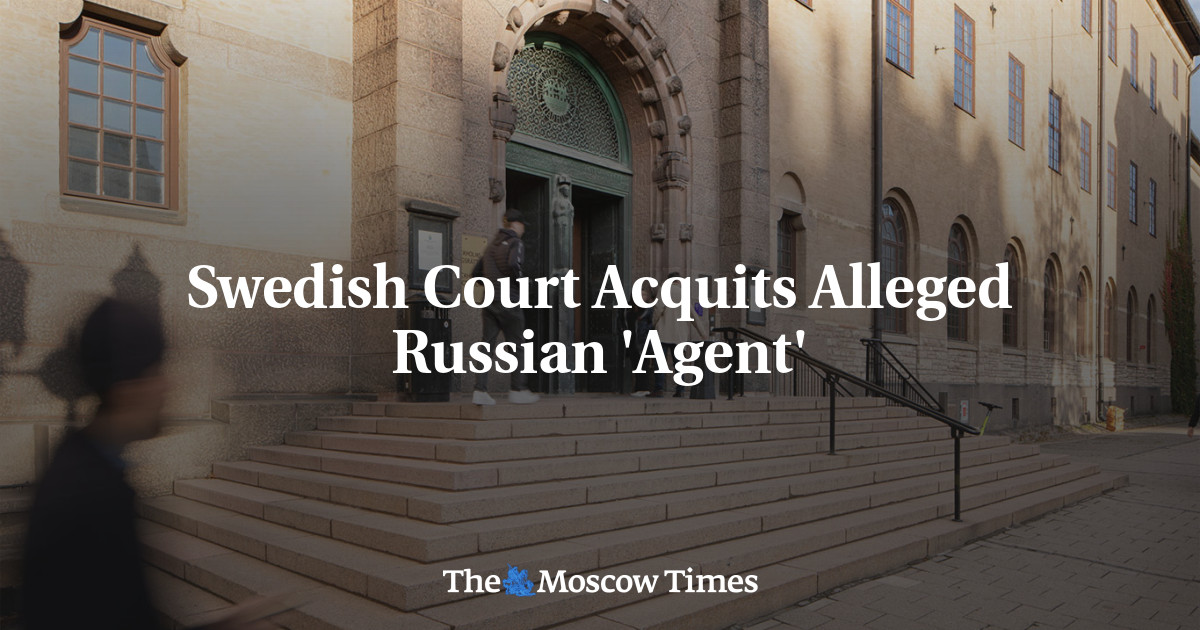
A Stockholm court on Thursday acquitted a Russian-Swede accused of passing Western technology to Russia’s military, ruling that while he did export the material his actions did not amount to espionage.
Prosecutors had sought a five-year sentence against Sergei Skvortsov, a 60-year-old dual national who has lived in Sweden since the 1990s running import-export companies.
Skvortsov stood accused of conducting “unlawful intelligence activities” for a decade against Sweden and the United States until his arrest in November 2022.
Prosecutors claimed Skvortsov was a “procurement agent” for a vast Russian organization acquiring technology off-limits to Moscow due to sanctions.
According to experts quoted in the Swedish media, the equipment was mainly electronic devices that can be used in nuclear weapons research.
“He is a procurement agent for the Russian military complex and its intelligence unit GRU,” prosecutor Henrik Olin told the Stockholm district court in his final arguments in late September.
“Russia has a need for electronic technology. There is a Russian procurement system, and this system is run by the intelligence services… Skvortsov and his two companies are a part of this system,” Olin said.
He said Skvortsov’s actions posed “a serious threat” to US and Swedish national security.
But the court found that while Skvortsov had exported the material, that was not tantamount to espionage.
His business activities “constituted a platform for technology acquisition from companies in the West and that advanced technology had been acquired and delivered to the Russian state by circumventing export regulations and sanctions,” the court said in a statement.
But, judge Jakob Hedenmo noted, “the main question in the case is whether the defendant’s activities could lead to espionage.”
“For criminal liability under the indictment, the activity must have been had the purpose of obtaining sensitive information with high security value concerning Sweden and the United States in order to commit espionage,” he said.
“The prosecutor has not been able to prove that the intention of the activity was to collect such information.”
Much of the trial was held behind closed doors on national security grounds.
Skvortsov was held in detention for almost a year until the Stockholm district court ordered him released on Oct. 9, following the end of his trial.
Legitimate businessman
Skvortsov’s lawyer Ulrika Borg had argued during the trial that her client was a legitimate businessman who sought the proper Swedish authorisations for his exports.
Olin had argued those authorizations were designed to “provide a veil of legitimacy” and that Skvortsov used false names of business partners, omitted information about the products he exported and provided false information about their end users.
Olin said the electronic devices were mainly from the United States.
He claimed U.S. authorities had prosecuted people in New York in 2016 for providing Russia’s “military complex” with electronic devices, and that U.S. authorities believe Skvortsov took over that role from those individuals.
A U.S. Federal Bureau of Investigation (FBI) official testified behind closed doors during the Stockholm trial, alongside Swedish intelligence officials.
Swedish Prime Minister Ulf Kristersson said in July the Scandinavian country was in “the most serious security situation since World War II,” facing parallel threats from both “states and state-like actors.”
On Tuesday, he cited Russia as one such threat, noting Moscow “dislikes” Sweden’s bid to join NATO and the fact that Stockholm backs Kyiv in the war in Ukraine.